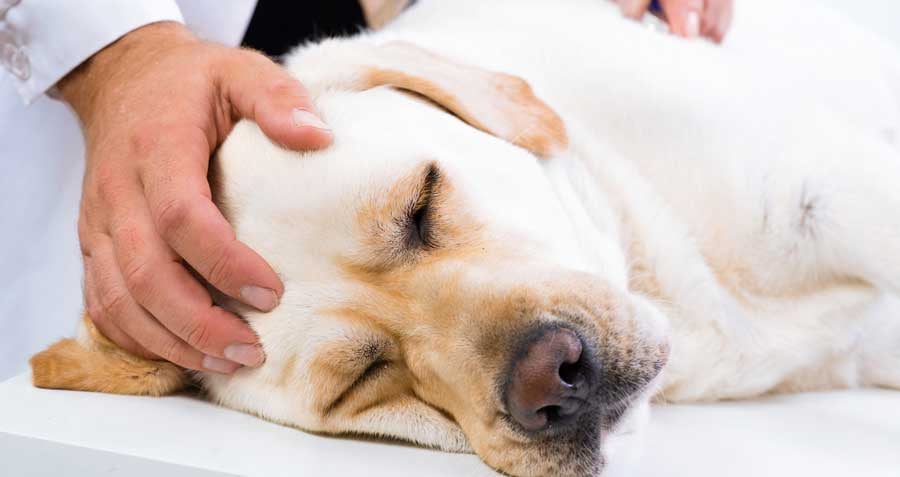You might not like a trip to the dentist, but think about how your dog feels. All of those unpleasant-looking utensils gleaming silver under the lights, lots of loud noises, a pair of gloved hands (which, as every Fluffy or Fido knows, is never good news!)--and all of it without the knowing what will happen. Dentistry is a crucial part of your pet's health routine, but it doesn't have to be so stressful; that's why it's important to find pet care professionals who use anesthesia for dog teeth cleaning.
Without Anesthesia
Pets can rarely be reasoned with, and that's especially true when you're trying to clean their teeth! Just imagine being a pet, unaware of what's in store for you, when sharp utensils and strange faces start coming toward your mouth. Without anesthesia, even routine dental cleanings can be incredibly stressful--and sometimes painful--for both your dog and the vet. These procedures are rarely efficient when dogs are awake and may even harm themselves on the tools or on the X-ray machine.
Although anesthesia-free dental cleanings are rumored to be "safer" options, your pet would tell you otherwise. Such procedures are risky, inefficient, uncomfortable, and immensely stressful. That's why the vets at IPH agree that anesthesia is necessary for dog teeth cleanings.
With Anesthesia
Dental cleaning is a crucial part of a wellness routine for both you and your canine. You want to make each dental cleaning visit as "fear-free" as possible, so for the safety of both your pet and your pet's dental health expert, it's important to choose a facility that encourages the use of anesthesia during teeth cleanings.
Here is a closer look at how anesthesia makes such a big difference:
- Safety. You've probably heard that using anesthesia for dog dental cleanings isn't safe--but the truth is that it's much safer than anesthesia-free procedures. There is always some risk involved, but it's no problem when you choose a facility that takes all the necessary precautions, including having a dedicated nurse to monitor anesthesia so that the veterinarian doesn't have to multitask. (Tip: you never want a distracted surgeon!) Another huge safety concern is the risk of the patient inhaling water, tartar, and all kinds of unpleasant things. The endotracheal tube used with anesthesia reduces this risk.
- Efficiency. You wouldn't want to put your pet through all of the stress and pain of a dental procedure without anesthesia, only to realize that the procedure didn't even do its job. Unfortunately, that's the case when your pet is awake and able to move around. Furry patients under anesthesia don't interrupt the process, which means that all examinations, cleanings, polishing procedures, and more can be thorough and efficient.
- Comfort. At the end of the day, you want your pet to stay healthy, but you don't want to cause more problems by trying to solve a single one. Dental procedures with anesthesia are important for maintaining your dog's comfort, limiting the stress and pain involved, and providing you the peace of mind that your pet doesn't have to suffer to be healthy.
Here at Intermountain Pet Hospital, we firmly believe that anesthesia is a crucial part of dog teeth cleaning. With pet care experts available to answer all of your questions, dental professionals ready to clean dog teeth, and dedicated nurses to monitor anesthesia, you can rest assured that your dog's dental problems are a thing of the past.
If you're interested in learning more about safe pet care practices, or if you're looking for a trustworthy facility for dog teeth cleaning, contact us today!
